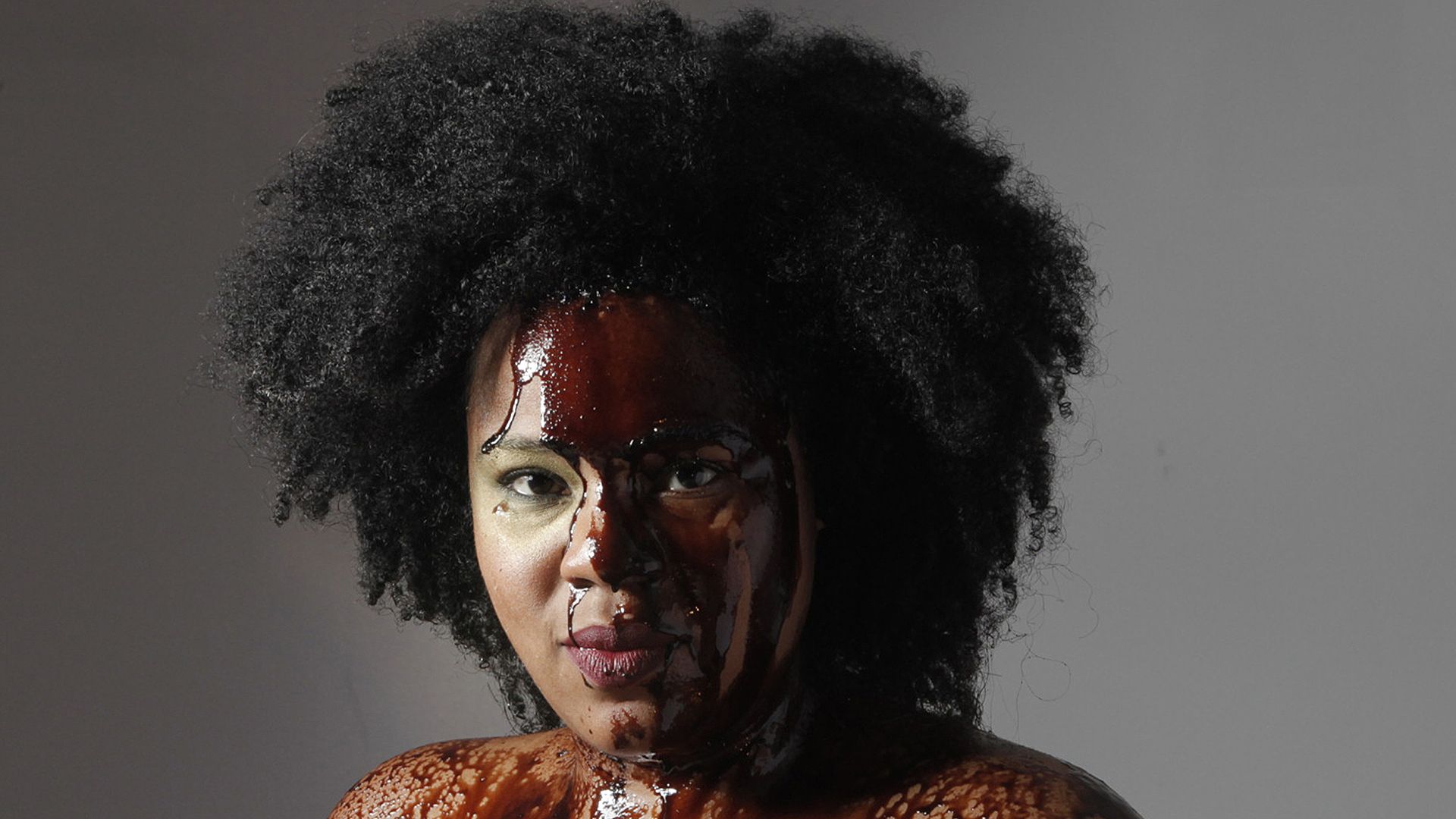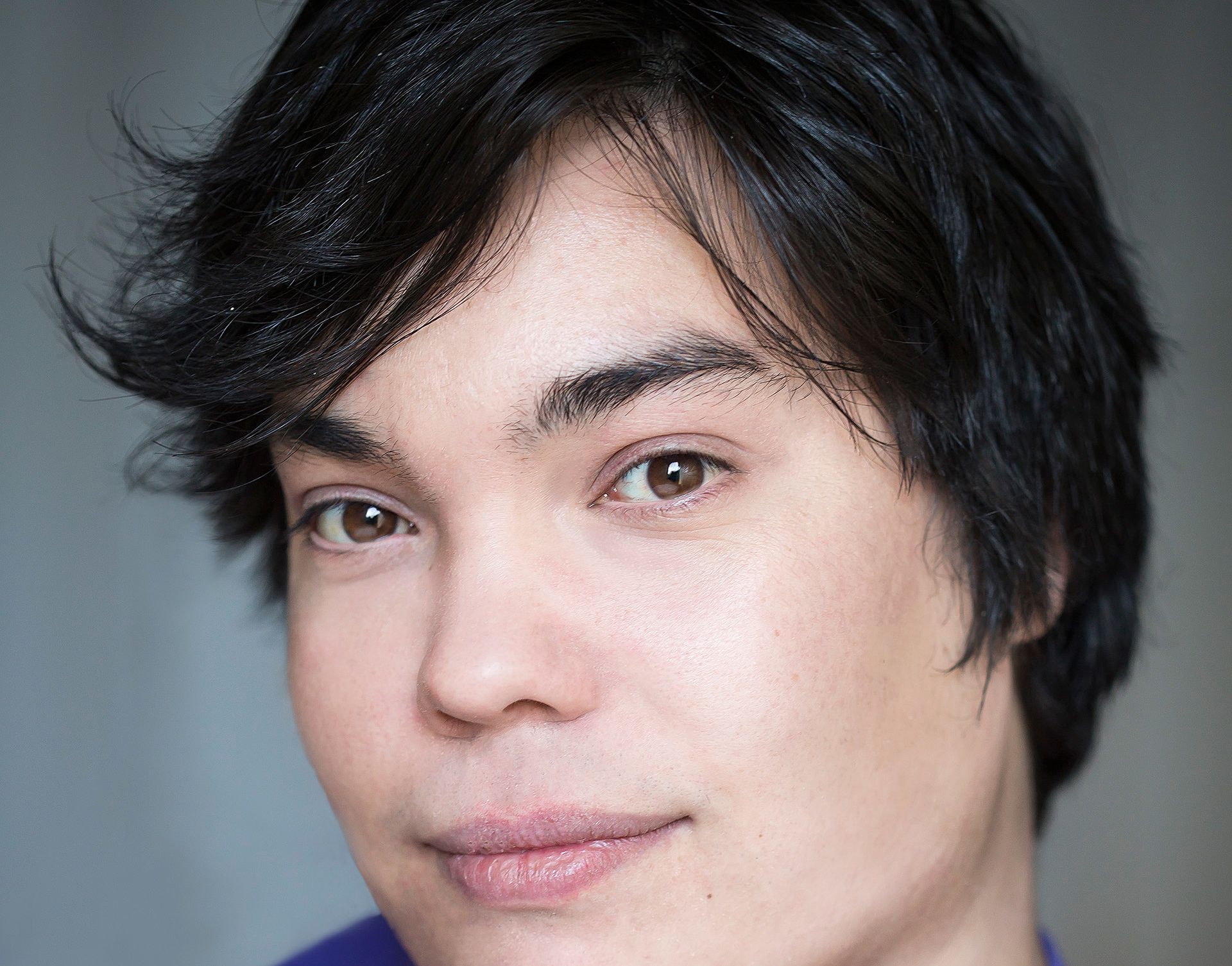Review: Tar Baby
Sam Brooks reviews Desiree Burch's Tar Baby - an important, hilarious and angry show about race and our role in it.
Tar Baby, part of the Auckland Arts Festival, is a conversation about race that draws in and implicates the audience in their role in racism, without ever feeling like a lecture about it.
Tar Baby is an important, hilarious and angry show. Tar Baby implicates the audience in their own conceptions of race, and rages against the idea of being forced, through prejudice and mistreatment, to be an othered person, a person of minority, a person of difference. Tar Baby is one of the most provoking pieces of theatre I’ve ever seen, and the best and most heartbreaking thing about it is that it’s a show that exists out of necessity than will.
The brainchild of Desiree Burch - an actor/comedian/performance artist from the USA - Tar Baby straddles the line between standup and theatre. At the outset, Burch explains the structure of the show, setting up your stereotypical side-show, travelling-performer carnival that tells us about race, but she breaks out of the structure to share her own experiences as a black woman in America. At a glance, it can seem messy, but that structure is deceptively tight and thought-out.
Burch plays games with the audience in the first half, drawing them into her thesis and her conversation. She sings a song about the history of slavery, and brings audience members up to re-enact parts of that history. Audience members are forced pick up rice from the ground, or collect sugar or cotton. It’s a game that sets us up for what’s to come; it’s going to make us think and make us feel uncomfortable, but we also have to laugh at the ridiculousness and injustice of it, especially at this micro-level. If this can happen to a small group of audience members at the behest of one person in power, how did it ever happen to generations of people at the behest of a few people?
A game later on in the show comes out of Burch’s experience auditioning for a bit part in a student short film.he knows that the directors just want her to be ‘blacker’, but they’re too afraid to do that. She asks the audience to tell her how to be ‘blacker’, and the audience is torn between giving her legitimate direction and refusing to participate in it. The tension in the room is huge, and is only partially broken by Burch saying, “Identifying racism is not the same as perpetuating it!”.
It’s an incredibly loaded moment onstage, playing with our own perceptions of what ‘blacker’ means, and also our perceptions of what these theoretical directors think ‘blacker’ means. Burch knows we know what they mean, and triggering us to actually express that breaks us into a place where we’re more open to the second half of the show. We’re won over to her side and her way of thinking if we weren’t before, and we’re willing to go along with wherever she’s taking us. Most importantly, we’re actually included in a conversation and allowed to laugh, get angry and express that anger.
The most stunning part of the show is where Burch is discussing her high school experience with a friend who used to say racist things to wind her up, and it would make her respond in more racist ways. It eventually leads to her getting an audience member to put black paint on her face. It’s not even the rehearsed game that is the most heartbreaking moment about this part, but the moment where the emotional audience member asks her how she should put the black paint on. Burch, without missing a beat, and with the warm bluntness that bubbles up in the rest of the show, says that she can interpret it however she wants, but ‘do the right interpretation’.
The entire first half of the show is built on moments like this. Burch tells us things about racism, and her experiences with racism, but more importantly she brings out the audience, on a collective level and on an individual level, and their own attitudes towards racism. This show isn’t a lecture, it’s a conversation. As tight as the text is, as carefully structured as it is, Tar Baby is an exchange with the audience. We’re part of racism, and we need to be thinking and talking about it.
In the second half of the show, Burch sits down and gives us the frankest, most honest take on racism that she possibly can. I could’ve listened to her do this right from the start, but the genius in this show is that she knows that not everybody is ready to hear that. Not everybody is willing to sit in front of a black woman, who has unwillingly been defined and put into a box by centuries of institutionalised, insidious racism, and listen to her talk about those experiences and what they specifically mean to her. So she gives us games, she opens us up, and she warms us up, and then she punches us right in the gut.
Tar Baby shouldn’t have to exist. In an ideal world, it wouldn’t need to. But in the world we’ve got, I’m thankful that we’ve got a maker who is as intelligent and angry as Desiree Burch making it. The work creates a safe space for people to receive it, to participate in a conversation about racism. It fills our heads with questions, provocations, and no answers, and then sends us out into the real world to do with those things what we will. Tar Baby does what all good theatre should do, and it does it better than almost anything I’ve seen.

